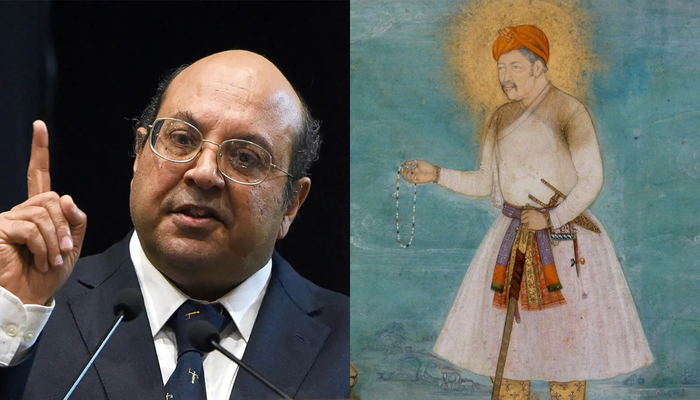Former SC judge whines about Akbar being exposed in textbooks, claims ‘distortion of history’: Read about the massacre of Hindus by the Mughal tyrant
By OpIndia Staff
Copyright opindia

Former Supreme Court Justice Rohinton Nariman has expressed concerns regarding the portrayal of Mughal ruler Akbar in history textbooks. While voicing displeasure over the portrayal of Akbar as a ‘tyrant’, Justice Nariman alleged ‘distortion of history’ in school textbooks.
The former judge made the remarks during the KM Bashir Memorial Lecture at the Press Club of Trivandrum on 1st September. Narrating a personal experience during this speech, Justice Nariman said that a child read out to him from a history book, and the contents shocked him.
“I was flabbergasted to find in a particular book, and a child read it out to me, to find that Akbar is stated to be a person who is a tyrant and a person who organised mass murders at Chittor, where so many women committed jauhar (self-immolation). That is pretty much all that was said about him, and almost nothing was said about any of the great Mughals. So there is a complete effacement followed by a total distortion,” the judge alleged.
Justice Nariman encouraged people to move courts against the purported “distortion of history”
According to Justice Nariman, Mughal rulers, including Akbar, made enormous contributions to the “composite culture” of the country. He added that it was our duty “to value and preserve the rich heritage of our composite culture” and that if the duty was breached by “distortion or erasure of history”, citizens can move courts.
Admitting that courts lack the expertise on matters relating to history, they can appoint expert panels to examine the issue and recommend corrections. “The court would have no expertise to do so itself. It could perhaps order some panel of experts to look into it and restore what our actual history is. This is only a suggestion made by me. But prevention is always better than cure,” Justice Nariman suggested.
History book were revised to present an accurate picture of Indian history
Justice Nariman’s remarks came in the context of the recent revision of the Social Science textbook for Class 8, by the National Council of Educational Research and Training (NCERT), in line with the recommendations of the National Curriculum Framework for School Education (NCFSE) 2023.
The much-needed revision of a history, which for long presented a whitewashed picture of India’s medieval history, was done with the intention of providing a complete picture of historical events or periods by retaining their negative as well as positive aspects. The revision was based on plain historical facts rather than some romanticised version of history.
The revised book attempts to present a balanced and accurate picture of Indian history, and, therefore, while it mentions how Mughal rulers Jahangir and Shah Jahan patronised art and architecture, it also points out the brutalities of Mughal rulers like Babur, who massacred the entire populations of cities. The book describes Aurangzeb as a military ruler who banned un-Islamic practices and reimposed taxes on non-Muslims, and defines the rule of Mughal ruler Akbar as a “blend of brutality and tolerance”.
Akbar ordered the massacre of 30,00 Hindus after the seige of Chittorgarh
Earlier, the history textbooks portrayed Mughal ruler Akbar as the epitome of religious tolerance by selectively highlighting the abolition of the Jizya tax by him and cleverly omitting any reference to his waged Jihad against Hindus during the siege of Chittorgarh, when he ordered the massacre of 30,000 Hindus. At the end of the battle, which went on for four months, Akbar proclaimed the siege of Chittorgarh and the victory of Islam over infidels. The men were killed, and several women and children were enslaved.
The opinion formed by Justice Nariman about the revised history textbook seems to be ill-informed. While the students must get to know both the positive and negative aspects of a historical period or ruler, it is equally important that the account of history presented to them is based on facts rather than romanticism or ill-informed opinions, and the final judgment is left up to them.



